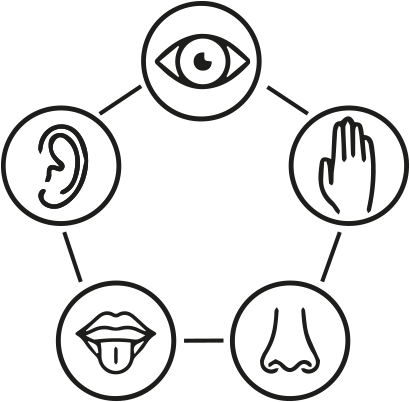Practical Phenomenology
| Practical Phenomenology
By Ike Kamphof MA in Media Studies: Digital Cultures |
| Objective statement / Intended effect of the tool
Aims of the module:
|
| Activity
Introductory lecture on practical phenomenology Practicing phenomenological observation and writing Method: practical phenomenology
During or right after online education sessions jot down keywords and notes. Points of attention: What is it like to work in this medium?
Remember: Wonder (epoche) and reductions:
Focus on experiential themes related to space/time/body/materiality/mood/relationship e.g., I-medium-world/object relationships World/object = class, present others…
All media comes with specific affordances and specific constraints Try to move beyond obvious constraints and affordances by being detailed e.g., argh it’s cumbersome, distanced… unfamiliar e.g., ah, I can sit at home and don’t have to commute… WHY? HOW? CONCRETE EXPERIENTIAL DETAIL on what it feels that x feels distanced… etc.
Structure: Short and simple (max. 250 words) Describes one! Significant incident of lived experience (works out only one experiential theme) Includes concrete detail (may contain quotes, what was done or said) has a punchy last line that marks the significance. Writing anecdote:
One example of anecdote: Where is (my) class? ‘Participants 1’ a small grey notice reads at the bottom of my laptop’s screen. But we are having class! Confusion presses behind my forehead, tingles in my hands that want to reach out. Less than a minute ago we were 28, cramped in a mosaic of rectangular boxes that held our faces together on this same screen; gestures, words and looks sprang from these boxes. And my own box, containing my face, was in the midst of it all. In the meanwhile, my self-in-the-flesh was leaning forward, shoulders hunched, trying to read faces for questions left about today’s assignment. In an instant, that whole bustle is gone. I sent them off myself, in so-called break-out groups. But I was not prepared for the ominous silence this deed effected. Suddenly, my screen has become flat, or a mirror, showing a woman sitting at her desk, ready to start on annotating their written work while they work on the assignment. But there seems no reason to do so now. Instead I catch myself wondering where they are. There is no space I can imagine where we all are. Class is broken into pieces, scattered into fragments of space floating between homes, screens, cables, electronic waves and Zoom software. Reality is a teacher facing her own image, having lost her class.
Explore with joy and wonder Give yourself time to dive into the concrete lived detail Find focus to explore depth
Peer reviewing anecdotes assignment Do this by: – giving general comments (making use of the points of attention drawn from van Manen (2014) below, and of the examples of anecdotes in the back of the Phenomenology Reader; – trying to rewrite (parts of) the anecdotes of peers, not as a ‘must do’ but as practice for yourself, and as possible suggestions and try-outs. Choose one (two is allowed), rework on the basis of feedback from peers and tutor and post as weblog post + send link to tutor |
| Course specific or not
Is originally designed for MA Media Studies: Digital Cultures but could be applied to other courses when the aim is to learn noticing one’s sense experience and train observation skills. |
| Target group specific or not
Master’s students but might be possible with Bachelor’s too |
| When do you use it?
When explaining phenomenology; when exploring types of research methods |
| Why do you use it? (Pedagogical approach)
Experience comes in many shapes, but when we are experiencing whatever we are seeing, hearing, feeling and doing, we are simply immersed in it and hardly conscious of it at all. What is the experience like, as an experience? What are ‘getting bored by a text’ or ‘hurrying through course material’ as experiences? It is not always easy to recuperate that, and when you try, you are always after the fact, drawing up words for something fleeting that hardly capture the richness of all that went on in that one experience. How is the situation for researchers? In their attempt to understand and explain the world, researchers are always in danger of losing touch with the world as lived in their own particular way. This is expressed in the famous image of the scholar inhabiting an ivory tower. From the tower (s)he studies and maps the world as an observing and thinking outsider. In contrast to this, phenomenology studies how we live in the world, as embodied subjects who are always involved with the world. Moreover, phenomenology studies our experience in the midst of being engaged with the world. |
Additional biblio sources
|
